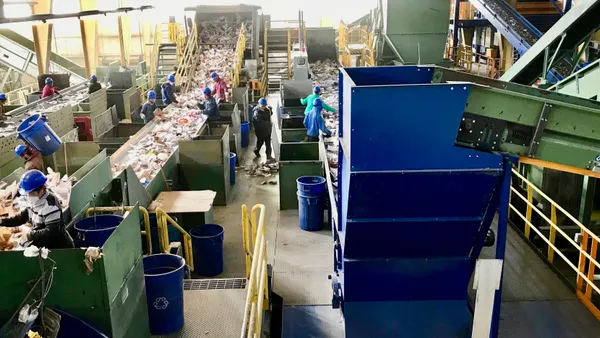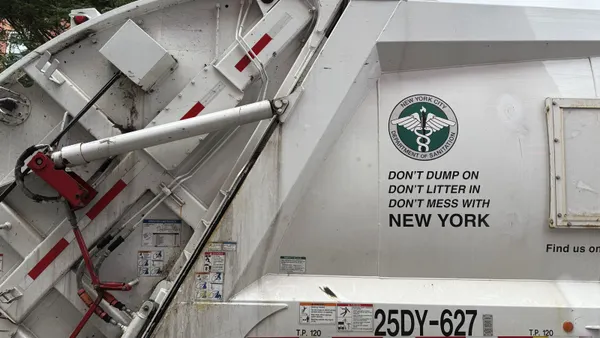Dive Brief:
- Starbucks has announced FoodShare, an initiative that aims to reach 100% donations of its leftover food by this time next year. The company is partnering with Feeding America, a national network of food banks, and Food Donation Connection, and will apply this initiative to its 7,600 locations across the United States.
- Starbucks claims that, while it has tried to donate food in the past, there was no efficient and consistent process to do it. Therefore the company has invested in research to figure out how to ensure that food donations can be made properly and safely.
- CNN Money reports that it was not the executives at the company that pushed for food donations. Instead, it was the baristas. "Our people just felt so badly ... And so we started doing our homework — municipality by municipality," Starbucks CEO Howard Schultz said to CNN.
Dive Insight:
In order for the nation to reach its first-ever national food waste reduction goal of 50% by 2030, it desperately needs participation from the big players — the food service giants that are tossing tons of unpurchased food each day, much of which is ending up in landfills. In addition, thousands of American people are going hungry each day, which is an issue that can be solved through food donations.
"When we thought about our vast store footprint across the US and the impact we could make, it put a fire under us to figure out how to donate this food instead of throwing it away," said Jane Maly, brand manager of Starbucks Food team.
The catch, however, is determining how to donate fresh food while keeping it safe to eat. "The challenge was finding a way to add fresh or perishable food, like breakfast sandwiches and salads, to the donation pick up while preserving the food's quality throughout the process," said Starbucks spokesperson Erin Schaeffer to CNN.
The task is not impossible. According to CNN, Chipotle, Cheesecake Factor, Yum! Brands, KFC, Taco Bell, and Olive Garden all already donate leftover foods to people in need. These efforts are assisting the waste industry in reducing food waste, lowering methane emissions, and unlocking economic benefits.









